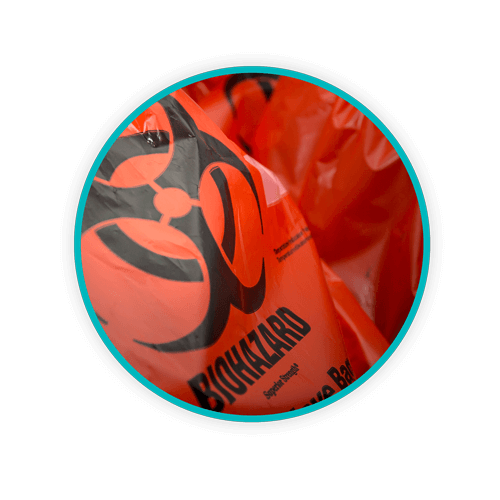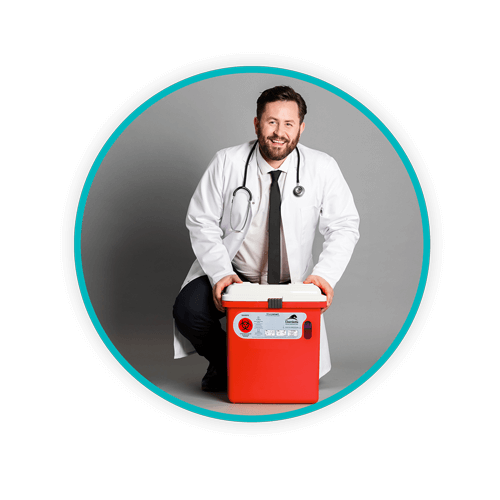Utah Medical Waste Disposal Services
Daniels Health is the leading expert in compliance, clinical containment and environmentally responsible waste management services. Transparent pricing, customized scheduling, immediate cost reduction.
Infection Prevention + Medical Waste
Daniels delivers a paradigm shift when it comes to staff and patient safety around medical waste
Every day, one out of 25 patients in the United States contracts a hospital acquired infection (HAI); this results in a staggering 90,000 deaths every year. There are many known contributors to HAI transfer within healthcare environments, but one of the contributors that is often overlooked is contamination and pathogen transfer from infectious waste. Daniels is the first company in North America to deliver clinically engineered containers designed to minimize contamination, leakage and infection control risks in healthcare environments.
Dramatically reduced infection transfer risk
Using a foot-pedal opening mechanism and bagless system means hand contact with the container is no longer required.
This no-touch alternative results in a dramatic reduction in the infection transfer risk that currently exists using standard medical waste containers. The Medismart reusable system ensures that once full, each container is removed from your premises, emptied, and then subjected to a rigorous 6-stage robotic wash and sanitization process that eliminates challenge organisms and proves a 106 Log reduction in bacterial load.
Daniels Industry-Leading Chemosmart
33% Reduction in Waste Volumes & Associated Costs
In every disposable container, approximately 33% of the total volume of the container when full is plastic from the container itself! With Chemosmart this means you will:
1. No longer be sending 33% of each container’s plastic volume unnecessarily to landfill
2. No longer pay for disposal of 33% of volume additional to the chemotherapy wastes generated.
3. No longer pay for plastic liners, outer packaging, procurement or container disposal costs
4. No longer have risks associated with spills, cross-contamination or penetration. Containers designed by clinicians with industry-leading safety and security features.
Does your sharps container pass the candy test?
If a piece of candy fell into an open sharps container… Could a child’s hand reach in to get it? A sharps container with a no-hands access safety tray is CRUCIAL, especially when situated in a patient environment. Daniels patented Sharpsmart tray achieves 100% hand-access restriction, even for tiny inquisitive hands!
How We Serve You
Across 6 countries, Daniels has become a brand name synonymous with healthcare innovation and service
In 40 years Daniels have become experts in delivering solutions for the niche requirements of healthcare. Today over 125,000 services are fulfilled annually across the United States by Daniels owned and operated fleet. From small practices to large medical facilities, our scalable business model ensures that every customer receives:
- Timely scheduled services with clear transparent communication
- Minimum disruption to patient care
- Safety and Security underpinning all biohazardous waste handling practices
- A positive and friendly customer experience
- Cost-effective customized solutions that guarantee efficiencies and maximize savings
Let's Talk!
Your time is valuable, and we don’t want to play hard to get. You can either phone us directly on the details listed on our contact page, or feel free to fill out this short form and one of our team members will get back to you as quickly as possible.


 quare and the Mormon Tabernacle in the city center is a must. 45 minutes from Salt Lake City is the Deer Valley, Utah Olympic Park and Park City Mountain resorts, perfect for all levels of skier. Park City also hosts the annual Sundance Film Festival every January.
quare and the Mormon Tabernacle in the city center is a must. 45 minutes from Salt Lake City is the Deer Valley, Utah Olympic Park and Park City Mountain resorts, perfect for all levels of skier. Park City also hosts the annual Sundance Film Festival every January.